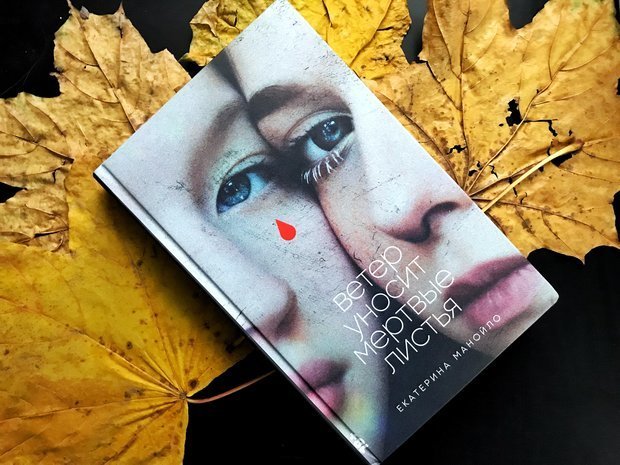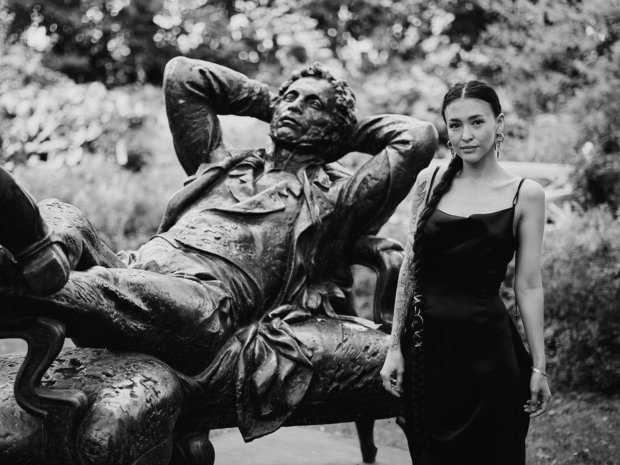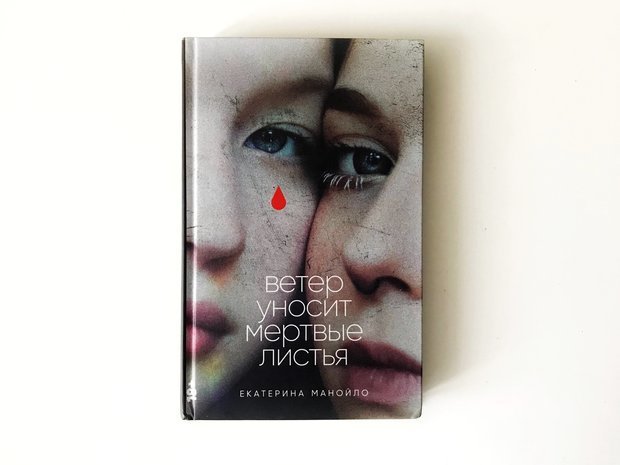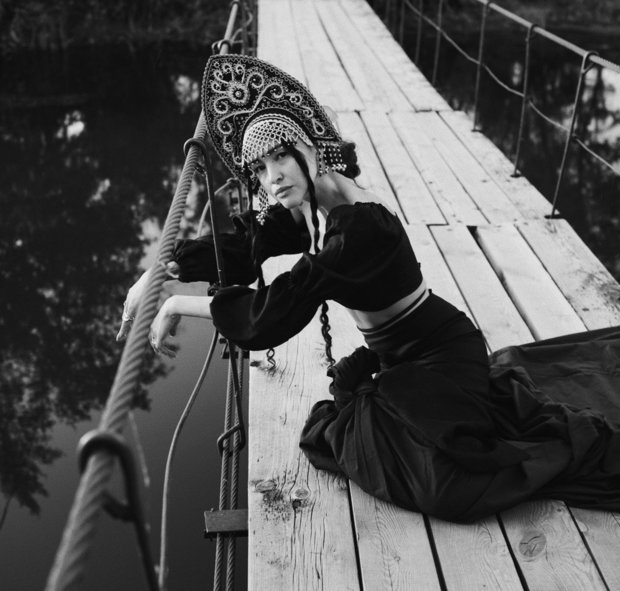Writer Ekaterina Manoylo — about domestic violence, alcoholism, and domestic homicide
In the new issue of The Bookshelf, we discuss her new novel “The Wind Blows Away The Dead Leaves” with the author

Ekaterina Manoylo is a writer, winner of the Lyceum Award, and finalist of Yasnaya Polyana Award. In October, in Alpina.Proza publishing house, her second book was published — The Wind Carries Away The Dead Leaves. In it, as in the debut novel Father Looks To The West, Ekaterina raises complex and rather difficult topics. This is physical and sexual violence, including against minors. This is alcoholism. Domestic homicide. In the new issue of The Bookshelf, the literary columnist of Realnoe Vremya, Ekaterina Petrova, discussed with writer Ekaterina Manoylo her new novel.
The novel The Wind Blows Away The Dead Leaves tells the story of two sisters, victims of domestic violence. The older sister Nyukta (Anna) comes to school for the younger sister Louza (Izi) and says that she did it, and now they need to run. From this scene the famously twisted story begins, which sometimes resembles an action.
“Not all women are ready for motherhood”
If we compare the new novel with the previous one (Father Looks To The West), then we can see one repeating pattern. This is a dead father and a mother who abandons her children.
Writer Ekaterina Manoylo: “At first I had a story about domestic violence with a domineering image of my father. The mother figure was initially present in the girls' lives, just as the Khachaturian sisters had a mother. But as far as I remember, her father kicked her out, and the girls stayed with him. In the process of writing the novel, I had a similar situation. But then I decided that she wasn't kicked out, but she left herself. And here comes the topic of motherhood and that not all women are ready for it, not everyone loves children. Many women, both after thirty and after forty, remain girls who want to go to Paris and meet their love. But society and loved ones pressed and forced them to get married.

Each character in the novel The Wind Carries Away The Dead Leaves is a collective image. Ekaterina came up with a specific hero of the book, and then collected photos of actors that he might look like in a folder. Almost all the characters had movie avatars, except Natasha (the heroine who suffers from alcoholism and is constantly subjected to domestic violence by a partner — ed.) and Podreza (Natasha's partner — ed.). Here Ekaterina described real people.
Writer Ekaterina Manoylo: “Such a story is most often found in life. Natasha is a woman whom society keeps telling and who herself believes that she is to blame for being beaten. Natasha is deeply convinced that something is wrong with her, and she is the cause of the beatings. There are a lot of such stories. One doesn't even need to invent anything here.”

“I hated my childhood and youth”
Domestic violence, alcoholism, and domestic homicide — for Ekaterina Manoylo, these are not topics on the current agenda. These are situations that she has faced in her life, since she is the daughter of an alcoholic. “I hated my childhood and youth. And I wasn't the only one there. I had several friends with whom we had nothing in common except this hatred. And we were ashamed of our parents and for being like that. There was a girl in a parallel class with whom we were different, but we had the same stories. She also hated her father and wished he wasn't there. This united us. We wanted something to happen and we were freed from an unbearable situation," says Ekaterina in the new issue of The Bookshelf.
The heroine of the novel The Wind Blows Away The Dead Leaves, the younger sister of Izi, is just the quintessence of teenage hatred, into which Ekaterina put feelings from her own childhood and the childhood of her friends, as well as the emotionality of the new generation of teenage girls.

Besides, while writing the book, Ekaterina Manoylo immersed herself in the work of crisis centres, read many stories about domestic violence. And at some point, she started having nightmares.
Writer Ekaterina Manoylo: “I read these horrors every day, when a woman can be chained to a battery and kept like this for weeks. There are a million such stories. It is clear that this should not be described in the novel, because it is seamy side. This horror, which you experience when reading such stories, should be conveyed not in direct text or a detailed description of violence, but so that the reader feels it in their gut. I'd been stewing in these stories for more than a year, and I also had to edit my own text. I realised that I couldn't reread my novel anymore, I started having nightmares. I woke up broken and was miserable all day. Then the publishing house involved the editor, after that I felt relief.”

“Everything is not so simple”
The first novel Father Looks To The West is a saying novel. In it, Ekaterina Manoylo describes the role of a woman in a patriarchal culture and society, her life in a patriarchal family. But in the second novel The Wind Blows Away The Dead Leaves, there is no such statement, although the condemnation of domestic violence is read from the first pages. After reading The Wind, there are more questions than answers. What is good and what is evil? Where is the line between them? Who should be considered a victim and who an aggressor? And can the victim be the aggressor, and vice versa?
Writer Ekaterina Manoylo: “Everything is not so simple. The phrase of the last two years describes this topic well. I started thinking about this from the time when I described the heroine of the novel Father Looks To The West, Amanbeke (the aunt of the main character Katya, her father's sister — ed.). I've talked a lot about the ambiguity of evil. On the one hand, we hate Amanbeke, but on the other — we know her difficult fate, and in hindsight, we begin to justify her. We do the same in life. I started writing The Wind at the moment when we and my friends were discussing the situation of the Khachaturian sisters. Some said that the law is the law, and the girls are murderers. Others said that the father had been raping girls for years, so girls cannot be judged. There are different views on one situation.”

In addition to the ambiguity of evil, in the new issue of the Bookshelf, the literary columnist of Realnoe Vremya, Ekaterina Petrova, talked with Ekaterina Manoylo about the history of the creation of the book cover, in which the writer's eldest daughter is involved. They analysed how male writers present sex scenes in their books and why it is fun for women to read. They discussed the division into male and female literature and whether it exists at all. Also, Ekaterina Manoylo also shared her plans for a creative trip to Magadan, where the action of her third novel, which she is already working on, will take place.
Ekaterina Petrova is the literary reviewer of Realnoe Vremya online newsppaer, author of Poppy Seed Muffins (Булочки с маком) telegram channel, and founder of the first online subscription book club Makulatura.